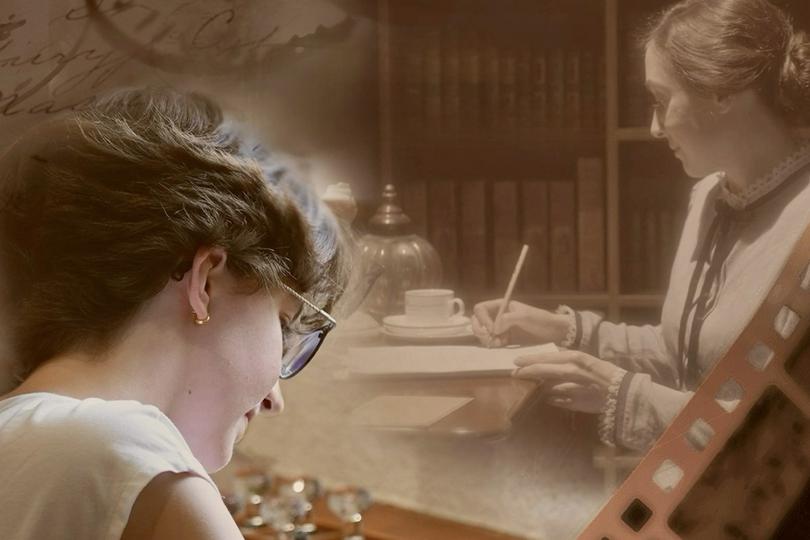The China-US co-produced documentary "Dear Kuliang" made its world premiere on November 7 at the 21st Chinese American Film Festival and Chinese American TV Festival in Los Angeles, the United States, marking the first time the Kuliang story has been presented through a Sino-American collaborative lens.
Spanning 50 minutes, the film traces the journey of descendants of the Carleton family as they revisit their ancestral ties in Kuliang, a historic summer retreat in Fuzhou, Fujian Province, known for its unique blend of Chinese and Western influences. Through the experience of American student Holly Bradsher and her unexpected friendship with Chinese youth Zhou Tianyi, the documentary weaves together past and present, highlighting how cross-cultural encounters continue to shape the region more than a century after foreign missionaries, diplomats, and families first settled there.
"Dear Kuliang" unfolds through the history of the Carleton family, centering on Holly Bradsher, a descendant who was inspired by her grandmother's stories about Dr. Mary Carleton, an American Methodist medical missionary who devoted nearly 40 years to medical service in Fujian, Fujian Province, and her adopted daughter, Mary Sing-Gieu Carleton, an early Chinese Christian educator and Columbia University graduate who assisted the medical mission in China and later became the principal of Uk Ing Girls' School, which was established by the Methodist Episcopal Church in East Asia. Determined to explore her family's past, Holly traveled to China alone, where she unexpectedly met Zhou Tianyi, a Chinese girl. Together, they retraced the Carleton family's footsteps in the historic Kuliang resort area in Fuzhou.
Kuliang, Fuzhou, is a place known for its unique blend of Chinese and Western influences. In the mid-19th century, Fuzhou, one of China's earliest trading ports, attracted foreign missionaries, businessmen, and diplomats. Due to its favorable climate, Kuliang became a popular summer retreat for expatriates. By 1935, the area had developed into a well-established international community with numerous houses, churches, hospitals, and post offices.
Their stories, including more Kuliang Friends' accounts, are now preserved at the Kuliang Families Story Museum, adding a profound historical layer to the enduring China-US friendship.












